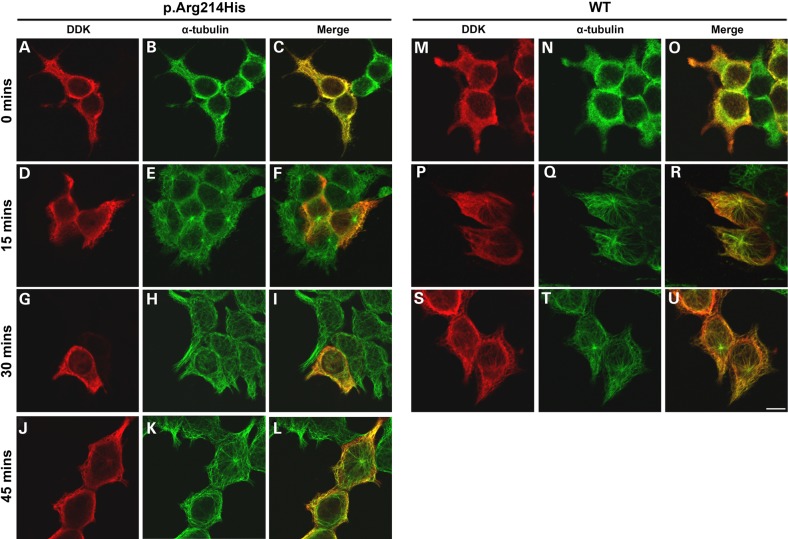Figure 4.
TUBA1A p.Arg214His demonstrates slowed microtubule reincorporation following cold-induced depolymerization. To examine the effect of the p.Arg214His amino acid substitution on microtubule dynamics in vitro, HEK293 cells expressing wild-type and variant TUBA1A were incubated at 4°C to induce microtubule polymer depolymerization. After 30 min, cover slips were returned to 37°C to promote microtubule re-polymerization. To observe the rate of microtubule growth in the presence of each construct, cells were removed after 0 (A–C and M–O), 15 (D–F and P–R), 30 (G–I and S–U) and 45 (J–L) min of polymer rescue and methanol-fixed prior to immunocytochemical staining. Wild-type TUBA1A (M–U) demonstrates reincorporation at a rate similar to endogenous tubulin. After 15 and 30 min at 37°C (D–I), microtubule repolymerization in TUBA1A p.Arg214His-expressing cells can be observed in the endogenous alpha-tubulin channel (E and H), whereas transgenic protein remains unpolymerized with no visible microtubules (D and G). TUBA1A p.Arg214His incorporation is evident after 45 min at 37°C (J); however, the proportion of variant tubulin appears to be at a markedly lower level than that of endogenous alpha-tubulin (L). Images were acquired blind to construct type and are representative of >95% of the cells observed. Scale bar = 10 μm.

